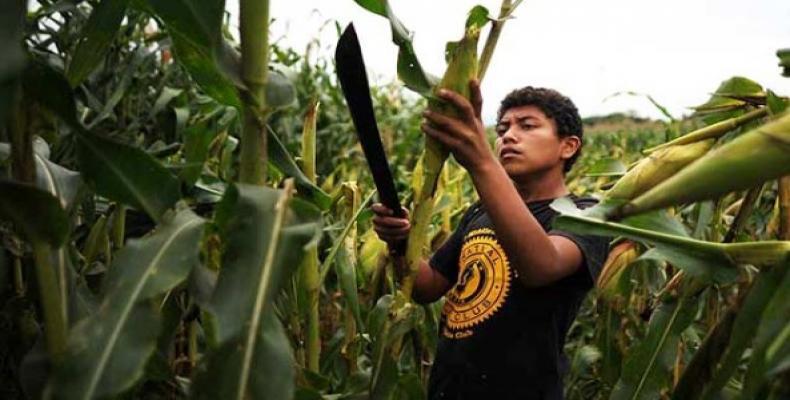Geneva, Nov. 14 (teleSUR-RHC) Severe drought in Central America is expected to severely affect at least 2.3 million people, particularly small farmers, who depend on local crops for money and nutrition.
According to a report by the World Food Program released Thursday, small farmers will suffer strong crop losses this year from drought caused by El Niño – a weather phenomenon induced by rising sea levels and warm currents entering the Pacific Ocean causing drastic changing weather patterns.
The drought will affect a region that extends from Guatemala all the way through to Costa Rica.
Urgent help is needed, according to Miguel Barreto, the regional director for Latin America and the Caribbean for the WFP. He says that at least $75 million is needed to assist all those people who will be affected by the worsening weather.
This is the second year in a row that Central America has experienced major drought and crop losses. Last year's drought caused several government in the region to declare a state of emergency for the catastrophic effects the weather left on their countries' food production abilities.
“At the request of governments, WFP assisted more than 200,000 people last year in El Salvador, Guatemala and Honduras ... Unfortunately another drought in 2015, exacerbated by El Niño, has caused significant losses in the first harvest season,” he added.
The United Nations Food and Agriculture Organization issued a similar warning in September, adding that the longer the drought lasts the greater the humanitarian disaster will become.
The FAO also warned that the climate change phenomenon will cause millions to flee Central America, drive further migration from the region. This will be particularly severe in Honduras, Guatemala and El Salvador, where poverty and lack of opportunity is already widespread.
According to the WFP, there is a “100 percent probability” that El Niño, which began to affect the region in March this year, will continue well into 2016.


